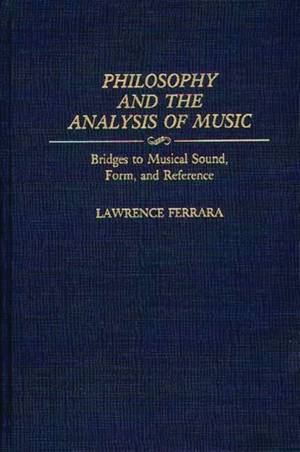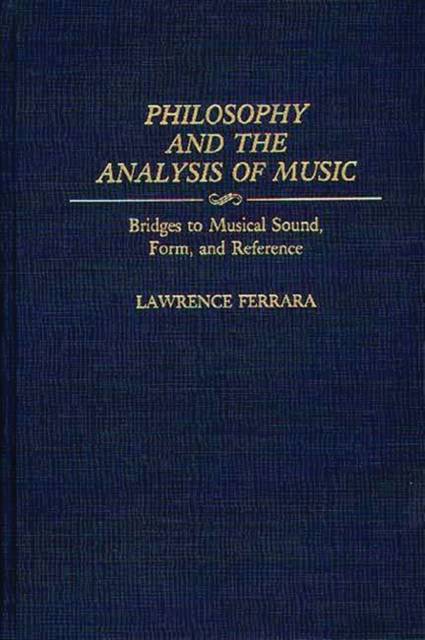
Door een staking bij bpost kan je online bestelling op dit moment iets langer onderweg zijn dan voorzien. Dringend iets nodig? Onze winkels ontvangen jou met open armen!
- Afhalen na 1 uur in een winkel met voorraad
- Gratis thuislevering in België vanaf € 30
- Ruim aanbod met 7 miljoen producten
Door een staking bij bpost kan je online bestelling op dit moment iets langer onderweg zijn dan voorzien. Dringend iets nodig? Onze winkels ontvangen jou met open armen!
- Afhalen na 1 uur in een winkel met voorraad
- Gratis thuislevering in België vanaf € 30
- Ruim aanbod met 7 miljoen producten
Zoeken
€ 161,45
+ 322 punten
Omschrijving
A musical experience is marked by the synthesis of passion and rationality, emotion and understanding, and body and mind. Ferrara demonstrates that each method of musical analysis confines musical significance to a single level: formal methods explain musical syntax; phenemonological methods describe the sound-in-time; and hermeneutic approaches interpret referential meanings. Ferrara devises an eclectic method that provides bridges for musical sound, form, and reference.
In response to the multiplicity of levels of musical significance, Ferrara's eclectic method draws upon a wide-ranging number of conventional and non-conventional approaches to musical analysis which results in a dialectic of methods. Referential meanings are concretized, clarified, and delimited by the degree to which they can be grounded in the sound-in-time and formal elements; the latter are reexamined, expanded, and enriched by referential insights. In the last two chapters, the eclectic method is tested through analyses of works by Bela Bartok and David Zinn. This book is intended for trained music listeners and performers, music analysts, musicologists, and those interested in aesthetics and the development of music and music education.Specificaties
Betrokkenen
- Auteur(s):
- Uitgeverij:
Inhoud
- Aantal bladzijden:
- 390
- Taal:
- Engels
- Reeks:
Eigenschappen
- Productcode (EAN):
- 9780313283451
- Verschijningsdatum:
- 11/12/1991
- Uitvoering:
- Hardcover
- Formaat:
- Genaaid
- Afmetingen:
- 152 mm x 229 mm
- Gewicht:
- 739 g

Alleen bij Standaard Boekhandel
+ 322 punten op je klantenkaart van Standaard Boekhandel
Beoordelingen
We publiceren alleen reviews die voldoen aan de voorwaarden voor reviews. Bekijk onze voorwaarden voor reviews.











